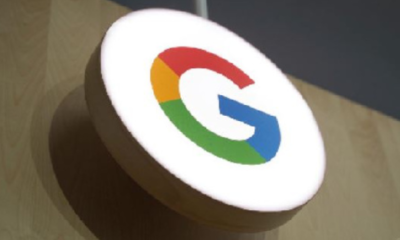News Africa
Google adds Swahili to AI chat service

This is a significant milestone as it marks the incorporation of Swahili, the first African language into Bard.
Bard, an experimental conversational AI chat service developed by Google, functions similarly to ChatGPT.
However, the key distinction lies in Bard’s ability to source information directly from the web.
Like other AI chatbots, Bard is capable of coding assistance, solving math problems, and providing support with writing and any other related tasks.
The update also introduces new features that enhance customisation options for users while boosting creativity and productivity.
With this expansion, Bard is now available in most parts of the world, including countries within the European Union (EU).
It supports major global languages such as Swahili, Chinese, German, Spanish, Arabic, and Hindi.
Users can access Bard in their preferred language with text-to-speech functionality available in eight languages.
Head of Communications and Public Affairs for SSA at Google, Dorothy Ooko, was ecstatic about this expansion, “We see this global availability as a great democratizer of knowledge. That’s why we created Bard – to help you explore your curiosity, to augment your imagination, and ultimately bring your ideas to life.”
Swahili is among Unesco’s top 10 most widely spoken languages globally with over 200 million speakers.
By incorporating more diverse languages and territories into Bard’s repertoire, the platform aims to become more inclusive while ensuring safety through feedback from an expanded user base.
Languages manager at Google, Rachael Ndichu, highlighted the significance of launching Bard in Swahili, “This is a major milestone that allows even more people across Africa — where approximately 150 million individuals speak Swahili to benefit from using Bard.
We believe it will serve as a powerful tool for creativity and learning. We are excited about witnessing how people in the region utilise Bard to explore their ideas and discover new things.”
The latest updates accompanying this expansion include listen to responses which enables users to listen to Bard’s responses in more than 40 languages by selecting the sound icon.
This feature proves especially helpful for hearing correct pronunciations, poems, or scripts. Users can also customize Bard’s responses by adjusting the tone and style to five different options including simple, long, short, professional or casual. Currently available in English, this customization functionality will expand to other languages soon.
Google has introduced four additional features to enhance user productivity. Users can now pin and rename their conversations with Bard, making it easier to revisit discussions containing essential information or ideas. Exporting Python code is made simpler through the export code to more places, a feature which adds support for Replit alongside Google Colab.
This enables users to easily share their code with others or utilize it in other projects. Users can also collaborate on projects or seek feedback on ideas by sharing Bard’s responses via shareable links. Finally, Bard now accepts image uploads with prompts.
Bard aims to combine the vast knowledge of the world with Google’s powerful language models, intelligence and creativity. It derives its responses from web-based information.
As an experimental technology, Bard may occasionally produce inaccurate statements when responding, and advises if users encounter any issues, inaccurate or unsafe responses or wish to provide feedback, a straightforward process is in place.
Source: theeastafrican.co.ke
-

 Lifestyle1 month ago
Lifestyle1 month agoRoad Safety Authority narrates how buttocks causes road accident
-

 GENERAL NEWS1 month ago
GENERAL NEWS1 month agoWhy 15 police officers stormed Owusu Bempah’s church – Kumchacha narrates
-

 GENERAL NEWS1 month ago
GENERAL NEWS1 month agoWatch how Ibrahim Mahama rode Honda superbike to pay last respects to late friend
-

 GENERAL NEWS1 month ago
GENERAL NEWS1 month agoHow Offinso residents storm destooled queen mother’s house, demand for new chief
-

 South Africa News1 month ago
South Africa News1 month agoWoman thrown out of a speeding taxi while on her way to work
-

 GENERAL NEWS2 weeks ago
GENERAL NEWS2 weeks agoDeadly clash between youth and navy personnel results in two deaths at Tema Manhean
-

 SHOWBIZ KONKONSAH3 weeks ago
SHOWBIZ KONKONSAH3 weeks agoJunior Pope’s Death: Video of John Dumelo refusing to join canoe for movie shoot over safety concerns resurfaces
-

 News Africa2 months ago
News Africa2 months ago‘Satanically dubious’ – SCOAN releases statement on BBC’s report about TB Joshua, church











